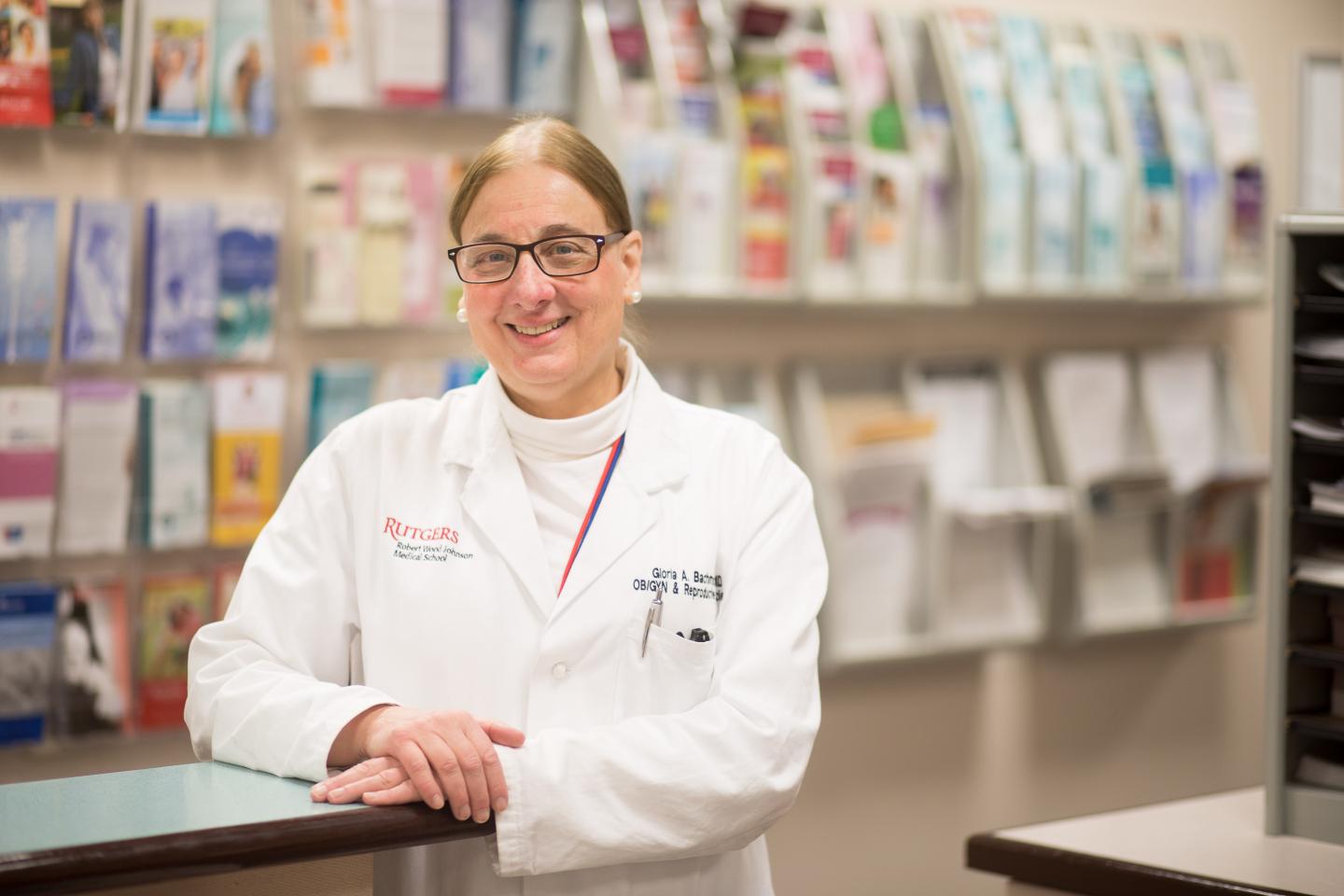Men who delay fatherhood should consult their doctor and consider banking sperm before age 35

Credit: Rutgers University
Men who delay starting a family have a ticking “biological clock” — just like women — that may affect the health of their partners and children, according to Rutgers researchers.
The study, which reviewed 40 years of research on the effect of parental age on fertility, pregnancy and the health of children, was published in the journal Maturitas.
“While it is widely accepted that physiological changes that occur in women after 35 can affect conception, pregnancy and the health of the child, most men do not realize their advanced age can have a similar impact,” said study author Gloria Bachmann, director of the Women’s Health Institute at Rutgers Robert Wood Johnson Medical School.
While the medical profession has no clearly accepted definition of when advanced paternal age begins — it ranges from 35 to 45 — infants born to fathers over 45 have risen 10 percent in the United States over the past 40 years, likely due to assisted reproductive technology.
The study found that men 45 and older can experience decreased fertility and put their partners at risk for increased pregnancy complications such as gestational diabetes, preeclampsia and preterm birth. Infants born to older fathers were found to be at higher risk of premature birth, late still birth, low Apgar scores, low birth weight, higher incidence of newborn seizures and birth defects such as congenital heart disease and cleft palate. As they matured, these children were found to have an increased likelihood of childhood cancers, psychiatric and cognitive disorders, and autism.
Bachmann attributes most of these outcomes to a natural decline in testosterone that occurs with aging, as well as sperm degradation and poorer semen quality, but she said that some correlations need more research. “In addition to advancing paternal age being associated with an increased risk of male infertility, there appears to be other adverse changes that may occur to the sperm with aging. For example, just as people lose muscle strength, flexibility and endurance with age, in men, sperm also tend to lose ‘fitness’ over the life cycle,” she said.
Damage to sperm from stresses of aging can lead to a decrease in sperm number and a change in the sperm and egg that is passed from parent to offspring and becomes incorporated into the DNA of cells in the offspring’s body. “In addition to decreasing fertilization potential, this can also influence the pregnancy itself, as is noted by increased pregnancy risks when conception is successful,” she said.
These germline or heredity mutations also may contribute to the association of advancing paternal age and disorders in the offspring, such as these children being diagnosed with autism and schizophrenia. “Although it is well documented that children of older fathers are more likely to be diagnosed with schizophrenia — one in 141 infants with fathers under 25 versus one in 47 with fathers over 50 — the reason is not well understood,” she said. “Also, some studies have shown that the risk of autism starts to increase when the father is 30, plateaus after 40 and then increases again at 50.”
The study also found that older men struggled with fertility issues even if their partner was under 25.
“While women tend to be more aware and educated than men about their reproductive health, most men do not consult with physicians unless they have a medical or fertility issue,” Bachmann said.
She recommended that physicians counsel older men as they do older women on the effect their age will have on conception, pregnancy and the health of their child. If men plan on delaying fatherhood, they should consider banking sperm before their 35th — or at least by their 45th birthday — to decrease the increased risks to the health of the mother and child.
###
Co-authors of the study are Nancy Phillips, associate professor in the Department of Obstetrics, Gynecology and Reproductive Science at Rutgers Robert Wood Johnson Medical School, and Leahannah Taylor, a graduate student at Rutgers Graduate School of Biomedical Sciences.
Media Contact
Patti Verbanas
[email protected]
Original Source
https:/
Related Journal Article
http://dx.




